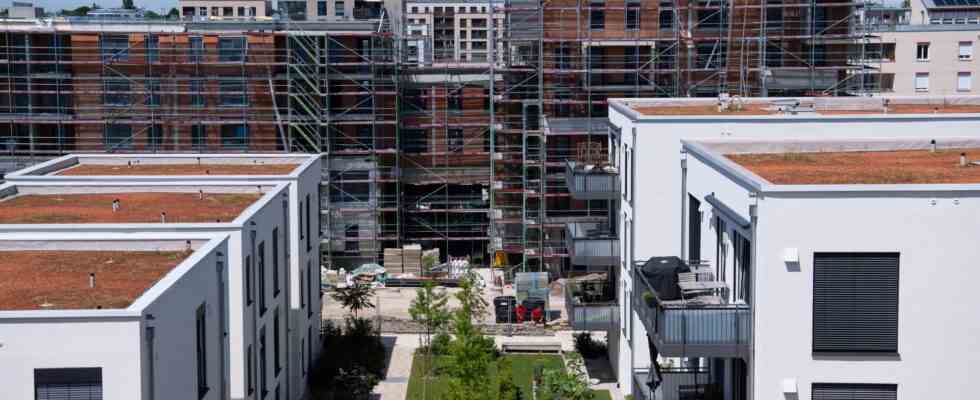Status: 04/20/2022 04:17 am
Starting today, anyone building a new, energy-saving house can apply for government funding from KfW again. A total of one billion euros is earmarked for the funding program.
From today on there will again be money for energy-saving houses from the Reconstruction Loan Corporation (KfW). Nassauische Heimstätte has already planned the funding for at least two construction projects with rental apartments in the Rhine-Main area. The Frankfurt housing association is in the process of getting the applications off the ground. “The funding is extremely important to us,” says Managing Director Monika Fontaine-Kretschmer: “Because that’s the only way to reconcile climate protection and affordable housing.”
The company, majority owned by the state of Hesse, builds many rental apartments that are priced to be affordable for people with lower incomes. In addition to climate protection, this is another challenge, says the managing director: “Because the construction costs have increased significantly in recent years, but we cannot compensate for this with higher rents,” says Fontaine-Kretschmer. In this respect, too, the funding is very welcome.
Up to 150,000 euros from KfW
Companies and private individuals can now apply for subsidized loans of up to EUR 150,000 from KfW for particularly energy-saving new buildings. The state can waive more than a tenth of the amount. Interested parties can submit an application to the KfW via a commercial bank. However, you need proof from an energy efficiency expert that a planned building meets all the requirements for the subsidy.
“To do this, the outer walls must be well insulated and predominantly use renewable energies, such as a heat pump, pellet heating or a solar system,” explains energy consultant Markus Hohmann from Steinbach in Hesse. He advises companies and private individuals in the planning phase. Overall, the properties would have to make do with just 40 percent of the energy that a standard building would consume, according to Hohmann.
Higher requirements than before
This means that the conditions for the new funding program are significantly stricter than for the previous one. But the energy consultant welcomes that, because previously the builders would have received the money without much effort. “You built more or less the way you wanted to build anyway and got a subsidy on top of that,” says Hohmann.
But that has now come to an end. The state is making ever higher demands and is thus providing real incentives to build more climate-friendly, says Ulf Moslener, an expert in sustainability at the Frankfurt School of Finance and Management: “This fits in with the long-term plan of Economics Minister Robert Habeck to make Germany emissions-neutral by 2045 , i.e. no more greenhouse gases.” And according to Moslener, it also fits in with the short-term ambitions to become independent of fossil fuels as quickly as possible, since the subsidized houses are mainly to be based on renewable energies.
The sudden stop still has an effect
However, the sustainability expert finds it somewhat unfortunate that the federal government surprisingly stopped the previous funding program early this year. Planning security is important, agrees the Hessian energy consultant Hohmann.
Hohmann knows customers who got nothing because of the abrupt stop. He gives an example: “If you count on 100,000 euros in subsidies for the construction of a house, and that suddenly disappears, this can become problematic for the builder, especially in times of rising building material prices.” According to Hohmann, those affected are upset. Because without funding, building has become much more expensive for them and the new funding program has come too late for many.
KfW funding program for energy-efficient construction
Ursula Mayer, HR, April 19, 2022 5:31 p.m

